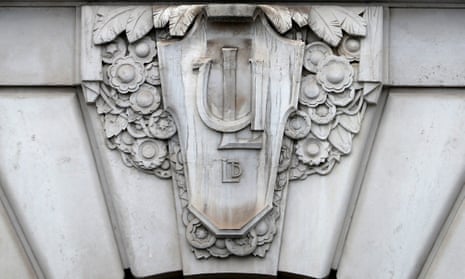Unilever’s U-turn is almost complete. It took two years, the process was tortuous, the chairman and chief executive have changed, but the consumer goods giant has accepted reality. If it wants to abandon its clunky Anglo-Dutch corporate structure, legal incorporation as a single entity can only happen in the UK. It’s the only way to win a thumbs-up from shareholders.
The Rotterdam proposal in 2018 would have failed if it had got to the vote because a large UK crew of shareholders hated the idea of a prized investment being thrown out of the FTSE 100 index. Those funds with UK-only mandates would not have been able to own the stock, and Unilever’s attempt to bully the index-compilers to bend the rules got nowhere, which was always the way to bet. Once Rotterdam became impossible, it had to be London.
Today’s Unilever board looks to have done its homework better than the 2018 version that took seven months to realise it would be humiliated in a poll. An unhappy Dutch government, which now stands to lose up to €200m (£177m) a year in local dividend taxes, has been squared with a promise that any future demerger of the food division would be an all-Netherlands construct. As for a reverse rebellion by Dutch fund managers, their ranks look too thin: they own only 10% of the current Dutch NV class of share.
That basic arithmetic was ignored in 2018 by former boss Paul Polman, a fine chief executive but perversely blinkered on the domicile question. Was he consumed by personal loathing of Brexit? In love with the stricter Dutch takeover culture after Unilever’s brush with Kraft Heinz’s unlovely financial engineers? Or too close to Mark Rutte, the Dutch prime minister and former Unilever manager? None of it matters if you can’t carry the shareholders with you.
Alan Jope, Polman’s successor, has done well to crack on. The dual-headed corporate structure dating back 90 years caused headaches when selling the spreads business in 2017, so it had to go. If Jope is signalling more deal-making ahead, investors are game. The best defence against future Kraft Heinzes, and the strongest guarantee of Unilever’s style of responsible capitalism, is a high share price. That’s what the company now has, roughly speaking. Unilever is jostling with Shell and AstraZeneca for the status of biggest beast in the FTSE 100.
In the meantime, the UK business secretary, Alok Sharma, is pushing his luck in claiming “a vote of confidence” in the UK. No jobs rested on the domicile decision and most of Unilever’s growth will continue to come from emerging markets. The legal holding structure was really a technical issue that Unilever should never have made messy. The UK, as the bigger capital market, was always the more natural home.
Jury is still out on wasteful Centrica
Here comes Chris O’Shea, new chief executive of Centrica, bursting with fresh ideas to reverse the disappointments and dividend cuts of Iain Conn’s reign. Actually, no, the new boss’s first big move at the owner of British Gas is yet another round of job cuts.
In fact, the 5,000 reduction seems to be a reheat of Conn’s own plans, just accelerated by 12 months. There is, to be fair, one point of difference – a pledge to flatten bureaucracy once and for all by getting rid of half the senior management team. We’ll await results but the broader ambition to create a “a more customer-focused business model” sounds exactly what Centrica has been saying for years.
Back in 2015, the company had 38,000 employees. Now it has 27,000, with the cuts to come. In the same period, the share price has fallen from 270p to 40p and exit from the FTSE 100 index looms.
The challenges are well-known – the energy cap, volatile oil and gas prices, nimble independent suppliers. But it’s hard to think of another major company that has squandered the privilege of market leadership quite like Centrica has done.
Fitting fine for Lloyds
There’s something new for Lloyds Banking Group to file under “legacy conduct issues”: a thumping fine of £64m from the Financial Conduct Authority, plus £300m to compensate customers who weren’t treated fairly when in arrears on mortgage payments.
The mystery is how a problem identified in 2011 could have taken until 2015 to resolve. The short answer seems to be inadequate training of staff and bad processes. But four years to fix? The largest bank fine for five years sounds entirely deserved.

